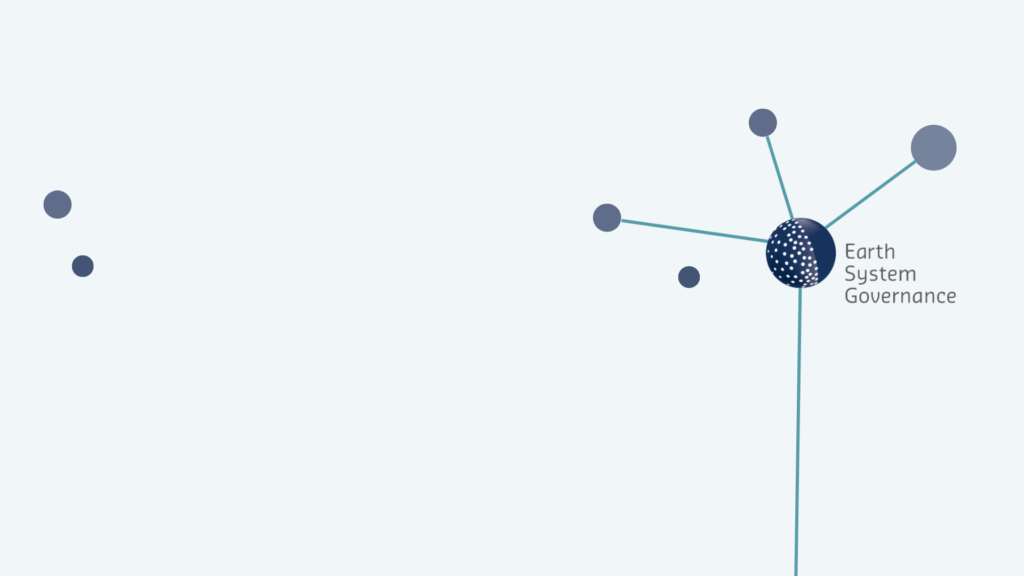The Berlin Conference Steering Committee and its partners invite papers for this year’s ‘Berlin Conference on the Human Dimensions of Global Environmental Change’. The 2010 conference will be the tenth event in the series of annual European Conferences. This year’s discussions will address the theme ‘Social dimensions of environmental change and governance’. The conference will be held in Berlin, 8-9 October 2010. Paper proposals are expected by April 6, 2010.
For decades, the economic costs and, more recently, the potential economic benefits of environmental change and governance have been at the centre of national and international public policy and academic debates. Yet, the socio-economic causes and impacts of global environmental change and the inadequacy of policies addressing them have remained at the margins of academic research and in related global policy arenas. While their relevance has been emphasized and reaffirmed in the Brundtland Report, Agenda 21, the Millennium Development Goals, and the Johannesburg Declaration on Sustainable Development, they remained but fringe issues in a predominantly growth-oriented and market-liberal global discourse. Pertinent policies neither delivered real changes nor did they redirect the thrust of academic debates. Therefore, much remains to be done to bridge the gap between ongoing efforts to conceptualize, analyze and measure the social dimensions of environmental change, policies and governance structures, on the one hand, and the corresponding efforts in mainstream economic analysis. Yet, the social dimensions must no longer be ignored as societies both in industrialized countries and in developing countries face potentially dramatic environmental changes and will have to undergo fundamental transformations to achieve sustainable development.
The society–environment linkage is threefold: First, shifts in societal structures and interactions as contained in prevailing business-as-usual development pathways are a major driver of environmental change. Population growth, increasing wealth within path-dependent technological trajectories and urbanization are among the most important factors that determine the use of natural resources and environmental services. They are often deeply rooted in dominant economic structures and cultural patterns which represent persistent drivers of individual and group behaviour. Redirecting these shifts towards a more sustainable path requires considerable governance efforts and structural reforms.
Second, environmental change, whether it occurs incrementally or abruptly, is likely to create new societal conflicts and challenges at local, national and international levels. Conflicts within and across societies over the access to and distribution of environmental resources and ecosystem services, environment-related poverty, deteriorating living conditions and environments, diseases, the loss of livelihood, or environmental displacement within and across national borders are only a few of potential social consequences that may follow from environmental change. Moreover, the costs and benefits of environmental change are often unevenly and unjustly distributed within and across societies as well as generations. These unfair distribution patterns may provoke disputes over equity and fairness at all levels of governance. Failures to effectively govern these challenges can increase the probability of local, national, and international insecurity and instability.
Third, environmental governance alters societal structures and interactions either because it either directly addresses the social causes of environmental change or because it affects societal practices and choices through its indirect effects. Both mitigation of and adaptation to environmental change might thus require fundamental transformations of societies. These would affect a wide array of sectors and policies, including changes in production, consumption and mobility patterns, the management of natural resources including land-use planning, population and settlement policies, tourism, and societal organization at all governance levels. Such fundamental transformations necessitate the modification of or even the departure from long-established and deeply rooted patterns of behaviour and lifestyles, cultural traditions, social norms and principles, or models of political and economic organization and development at local, national and international levels.
On the one hand, the social impacts of environmental governance can be a significant barrier to implementing effective policies and mitigating environmental change across sectors and at all levels of governance because they may provoke new or exacerbate existing conflicts within and across societies. The reallocation of resources and responsibilities, the costs and the benefits involved in overcoming environmentally harmful societal practices as well as changes in living conditions and livelihoods often divide societies into winners and losers. Transformations may thus reinforce prevalent social cleavages within and across societies or create new cleavages by transferring privileges and opportunities from some societal groups or societies to others. The transformation may collide with widely accepted social, cultural, and behavioural norms and principles.
This social-environmental interface, namely the risks, potentials, challenges and opportunities associated with environmental change and governance within and across societies will be the focus of the 2010 Berlin Conference on the Human Dimensions of Global Environmental Change. In particular, we invite papers that address the following issues:
- Social causes of environmental change: How do shifts in social structures and interactions affect the environment? How is environmental change exacerbated or mitigated by dynamics of poverty, socioeconomic development, demographic change, urbanization, or migration? What is the relevance of different preferences in societies regarding culture, lifestyles, and consumption, production, and mobility patterns? What are the relevant societal and structural differences regarding environmental change in industrialized countries, emerging and middle-income countries, and least developed countries?
- Social consequences of environmental change: How does environmental change affect socioeconomic development, including conditions for innovation, employment, income distribution, poverty eradication, social security, and the satisfaction of basic human needs? How does environmental change affect cultural change, lifestyles, and production, consumption and mobility patterns? What differences are there between societies in industrialized countries, emerging and middle-income countries, and least developed countries? What differences are there between impacts on societal groups at local and national levels? How does environmental change affect social norms and principles in different societies? What are the cultural, normative, and behavioural limits of social adaptation to environmental change in different societies?
- Justice, Equity and Distribution: What are the distributional effects of environmental governance—within and across societies? How can environmental resources be distributed equitably? What conflicts are likely to emerge from different distributional effects of environmental governance? How can costs and benefits of environmental governance be equitably shared? How can equitable access to common environmental resources and the provision of public goods be organized in different societal and cultural contexts and across sectors and governance levels? How relevant are internationally accepted principles (e.g. common but differentiated responsibility, polluter pays) as well as human rights based approaches to environmental justice?
- Governance, Institutions, and Policy Integration: What are social barriers to implementing effective policies in the mitigation and adaptation to environmental change at local, national and international levels and how may they be overcome? What are social benefits and enabling factors of environmental governance and how can they be effectively utilized? What are successful governance approaches in reconciling environmental and social governance? How did the sustainable development discourse affect environmental governance across governance levels and sectors? What are promising governance approaches to reduce the environmental burden caused by social structures and interactions? How can environmentally sustainable social practices and structures be strengthened? Conversely, what policies are likely to compound the environmental burden? How can environmentally unsustainable social structures and processes be effectively transformed? What are appropriate institutional architectures and approaches at local, national and international levels to respond effectively to the social challenges of environmental change and governance? What are potential mechanisms to recognize and prevent environment-related conflicts? To what extent do, can, and shall environmental concerns govern societies? How do, can, and shall societies balance the provision of public goods and individual freedoms?
- Indicators, Assessment, and Monitoring: How can the social costs and benefits of environmental change and governance be measured? How are environmental resources distributed across society? How are costs and benefits of environmental change and governance distributed across society? How can the distribution of environmental resources and resulting social impacts in and between societies be measured? How can the distributional and financial effects of environmental change and governance be accounted for? What are the main obstacles for generating and processing adequate data at national and international levels? What lessons can be learned from renowned major assessments such as the reports of the IPCC, the Millennium Ecosystem Assessment or the Stern Review? What are the limits of monitoring and assessment at the social-environmental interface?
- Theoretical and conceptual issues: What are the different theoretical, conceptual, methodological, and disciplinary approaches to questions relating to the social dimensions of environmental change and governance? What are their common grounds, what the differences? How can these perspectives be combined and integrated? What are possible synergies, what the conflicts? What is precisely the difference between social dimensions of environmental change and governance on the one hand and the economic dimensions on the other hand?
Submission
Proposals for papers must be submitted electronically on the Conference Homepage by April 6, 2010 and not exceed 300 words. All paper and poster submissions will be reviewed by an international review panel before being accepted. Details on abstract submission and more information can be found here
Notification of the decision will be sent by e-mail no later than June 30, 2010. Full papers are expected by September 20, 2010.


